Environmental socio-scientific issues in (teacher) education for science & mathematics (May, 20, 2021)
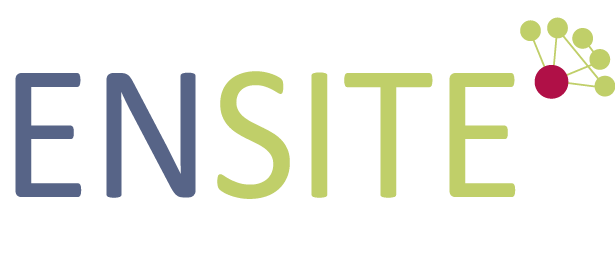 |
20 mei 2021 by Elwier/Ecent, Utrecht University. Een activiteit van het Ensite project. |
- Maatschappelijk-technologische vraagstukken in het bèta-onderwijs
- Studiemiddag voor lerarenopleiders STEM ihkv het project ENSITE.
- do. 20 mei 2021, 13:45-17:00
- Inschrijven
Thematiek
Moet vaccinatie verplicht worden? Mogen we alleen nog ‘duurzame energie’ gebruiken? Kan de opwarming van de aarde nog worden gestopt?
Dit type maatschappelijk-technologische vraagstukken (socio-scientific issues) krijgt in toenemende mate aandacht in de lerarenopleidingen voor de bètavakken. Het onderwijs heeft immers de taak om leerlingen voor te bereiden op een toekomst waarin ze in staat zijn mee te denken en beslissen over dit soort actuele vraagstukken
SSI zijn meestal weinig gestructureerde, open problemen of dilemma’s die meerdere oplossingen hebben.
Bij het nemen van beslissingen over dergelijke vraagstukken spelen onderliggende data een belangrijke rol.
Daarbij speelt de wiskunde, in het bijzonder de statistiek met grote databestanden een belangrijke rol. Tijdens deze studiemiddag gaan we in op de manier waarop de verschillende bètavakken samen aan de slag kunnen met SSI. We gebruiken daarbij onder meer ervaringen en ideeën uit Europese projecten over dit onderwerp (Parrise, MasDiv en Ensite).
Programma – Environmental SSI in mathematics and science teacher education
| 13:45-14:00 | Introduction |
| 14:00-14:45 | Invited plenary – Christine Knippels (Utrecht University, Freudenthal Institute) – SSI and IBL |
| 14:45-15:00 | Break |
| 15:00-16:30 | Topic discussions |
The workshop is planned prior to the Yearly national conference for Stem teacher Educators (Friday May 21), involving two workshops (in English) about themes from Ensite:
- On SSI -specific content to be determined
- SSI and statistics (big data)
Posters/Topics
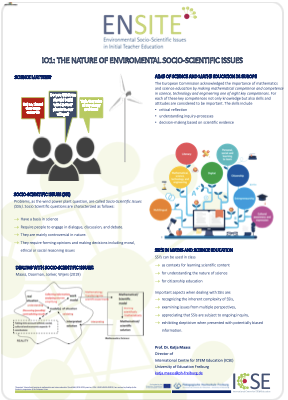
|
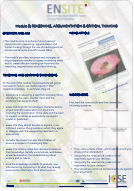
|
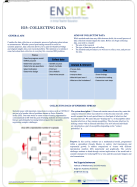
|
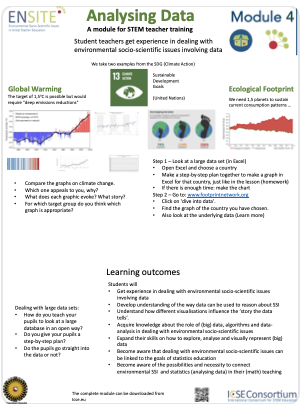
|
| The nature of SSI | Reasoning, argumentation and critical thinking | Collecting data | Analysing (big) data |
|
IO1 – Germany Oliver Strasser |
IO2 – Turkey Gultekin Cakmakci |
IO3 – Bulgaria Jeni Stoimenova |
IO4 – Netherlands Monica Wijers |
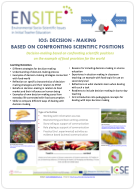
|
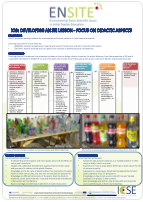
|
||
| Decision making in relation to the aspect of learning | Beliefs on teaching SSI | Developing a SSI lesson I – focus on didactic aspects | |
|
IO5 – Czech republic Martin Bilek |
IO8 – Cyprus Maria Evagorou |
IO9 – Norway Hilde Ervik & Ellen Andersson |
- Amos, R., Knippels, M.-C. and Levinson, R. (2020). Socio-Scientific Inquiry-Based Learning: Possibilities and Challenges for Teacher Education Contemporary Trends and Issues in Science Education, 41–61. 10.1007/978-3-030-40229-7_4
- Amos, R., Knippels, M. C. P. J., Kyza, E. and Levinson, R. (2018). Science with and for society (Theme Editorial) School Science Review, 371, 29
- Cakmakci, G. and Yalaki, Y. (2018). Promoting pre-service teachers’ ideas about nature of science through science-related media reports. In O. Tsivitanidou, P. Gray, E. Rybska, L. Louca and C. Constantinou (Eds.), Professional Development for Inquiry-Based Science Teaching and Learning (pp. 137-161). Dordrecht: Springer.
- Knippels, M. C. P. J., van Dam, F. and Van Harskamp, M. (Eds.). (2017). Socio-Scientific Inquiry-Based Learning: connecting formal and informal science education with society (PDF). Utrecht: Utrecht University / Parrise.
- Knippels, M. C. P. J. and van Harskamp, M. (2018). An educational sequence for implementing socio-scientific inquiry-based learning (SSIBL) (PDF) School Science Review, 100(371), 46-52
- Kolstø, S. D. (2008). Science education for democratic citizenship through the use of history of science Science & Education, 17(8), 977-997. 10.1007/s11191-007-9084-8
- Levinson, R. (2018). Introducing socio-scientific inquiry-based learning (SSIBL) (PDF) School Science Review, 100(371), 31-35
- Zeidler, D. L., Herman, B. C. and Sadler, T. D. (2019). New directions in socioscientific issues research (PDF) Disciplinary and Interdisciplinary Science Education Research, 1(11). 10.1186/s43031-019-0008-7



